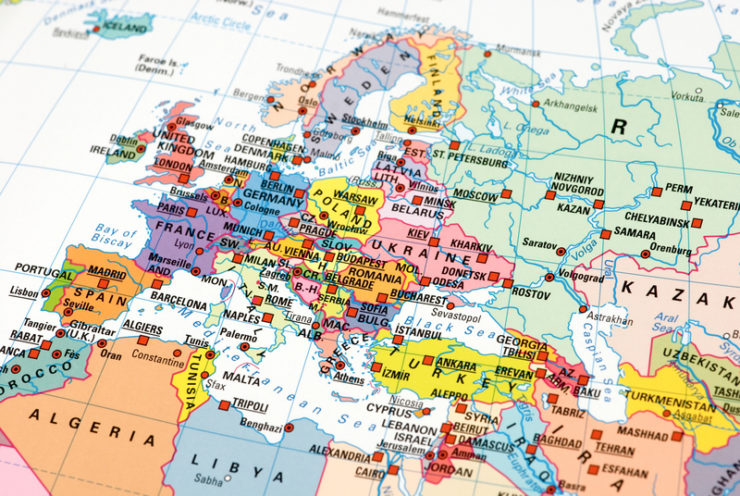
Even as presidential elections trigger a ferocious period in American democracy, close allies France and Germany are kicking off steps towards a multi-polar world order reflecting new challenges to Washington’s struggle to preserve its global leadership.
During this week’s first French State visit to Germany in 24 years, President Emmanuel Macron and German Chancellor Olaf Scholz laid out a detailed proposal to reclaim European sovereign power by reducing dependence on the US in all spheres.
They highlighted Russia’s invasion of Ukraine as an urgent existential crisis for all European countries and pledged to resolutely build up Europe’s weapons and war-fighting capacities.
That’s a long road since NATO estimates prepared for today’s alliance meetings said Europe has just 5 percent of the air and missile systems it needs to fight a war, potentially with Russia.
An early gain of this new Macron-Scholz amity is President Joe Biden’s reluctant permission yesterday to let Ukraine use some American missiles to strike inside Russian territory, but only against sites used to attack Ukrainians.
Covering almost all spheres, the Macron-Scholz plan is to rebuild their countries’ defense, high-tech, digital and manufacturing industries in coordination with the 27-nation European Union using mostly European funding.
If carried forward consistently, these new directions will transform the EU into a powerful pole in the global order, competing with American primacy.
There are risks along the way for democracy since almost all European countries are tilting towards illiberal right-wing parties that are scoring above 25 percent in some opinion polls.
So, the June 6-9 elections for European Parliament are forecast to bring right wing majorities overturning the usual center right and center left groups.
Other risks stem from the Macron- Scholz ambition of eroding Washington’s dominance over trans-Atlantic affairs. That would create more policy freedom to handle Chinese inroads in European markets without being railroaded by American politics towards Beijing.
The chief reason for such risk-taking by usually risk-averse Europeans is rising anxiety at Biden’s sliding political fortunes and a credible possibility that Donald Trump will win again, despite being found guilty on all counts on Thursday in New York’s criminal hush money trial.
Regardless of who wins the presidency, even countries like Poland and the Baltic states, which lean more towards the US than other Europeans, are deeply worried that the US will be less reliable and more inward-looking in coming years.
The rising unease is that Washington will no longer have the ability, political will or attention span to buttress Europe against Russian military aggression and Chinese economic aggression.
That fear is pushing Macron and Scholz to transform the EU into a global economic, financial, military and technological pole that the US can no longer treat as a subordinate ally.
This is perilous because it will fragment the Western unity needed for America to project power in its protracted combat against global forces of chaos driven by Russia, Iran, China and North Korea. Their actions threaten Europe in Ukraine, Israel in the Levant, India in South Asia, and Taiwan, South Korea and Japan in the Far East.
Yet, Macron and Scholz have decided to roll the dice because they believe the EU, itself, might unravel. “We can’t take for granted the foundations on which we have built our European way of living and our role in the world. Our Europe is mortal, and we must rise to the challenge,” they warned.
They deeply fear Russian President Vladimir Putin’s untrammeled violence in Ukraine and reckless threats of nuclear war in the heart of Europe.
Europe’s near abroad is menaced by Iran, a borderline nuclear power that covertly assaults Israel through proxies like Hamas and Jihadists in Gaza and the West Bank, Hezbollah in Lebanon and Houthis in Yemen.
China poses a profound threat to European prosperity because of burgeoning preponderance in green technologies, electric vehicles, alternative energy, and advances in the space, cyber and digital domains.
The cost to Washington would be to make room for a tripolar world order shared with Europe and China. Beyond that, a multi-polar world may be unavoidable as countries like India, Indonesia and Brazil and groups like the African Union move upwards.
This progression is probable because the West, which has long shaped world governance to its advantage, can no longer slow down the rise of non-Western competitors in economic, financial and military domains.
It will have to share the world’s resources and wealth more equitably. Macron and Scholz are trying to ensure that Europe will adapt in time without stumbles but success is uncertain because European politics is a hornet’s nest of contradictions.
















